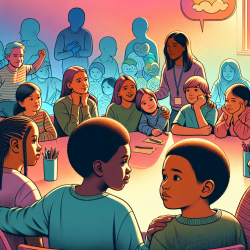Introduction
The mental health treatment gap in low- and middle-income countries (LMICs) like Sierra Leone is a significant challenge. With an estimated 98% treatment gap, the need for innovative solutions is pressing. A recent study titled Exploring potential mental health spillover effects among caregivers and partners of youth in Sierra Leone: A qualitative study sheds light on the potential for mental health interventions to create positive ripple effects beyond the direct participants.
Understanding Spillover Effects
Spillover effects refer to the beneficial impacts of an intervention experienced by individuals who are not direct participants. In the context of mental health, these effects can extend to family members and caregivers, improving their well-being as well. The study conducted in Sierra Leone focused on the Youth Readiness Intervention (YRI), an evidence-based program aimed at improving emotion regulation and interpersonal skills among youth.
Key Findings
- Reduced Caregiving Burden: Caregivers reported a decrease in stress and burden as youth participants showed improved behavior and engagement in household responsibilities.
- Behavioral Changes: Youth participants exhibited positive changes in mood, reduced substance use, and increased respectfulness, contributing to a more harmonious household environment.
- Improved Interpersonal Relationships: Enhanced communication and reduced conflict within households were noted, fostering a supportive and peaceful atmosphere.
Implications for Practitioners
Practitioners working with youth in LMICs can leverage these findings to advocate for the broader implementation of evidence-based mental health interventions. By highlighting the potential for spillover effects, practitioners can make a compelling case for increased investment in mental health infrastructure. Additionally, understanding these mechanisms can guide practitioners in designing interventions that maximize benefits for entire households.
Encouraging Further Research
The study's qualitative approach provides valuable insights into the mechanisms of spillover effects, but further research is needed to quantify these benefits and explore their sustainability over time. Practitioners are encouraged to engage in collaborative research efforts to deepen the understanding of how mental health interventions can create positive societal impacts.
Conclusion
The potential for mental health interventions to generate spillover effects offers a promising avenue for addressing the mental health treatment gap in LMICs. By investing in evidence-based programs, stakeholders can achieve broader societal benefits, improving the well-being of both direct participants and their families.
To read the original research paper, please follow this link: Exploring potential mental health spillover effects among caregivers and partners of youth in Sierra Leone: A qualitative study.










